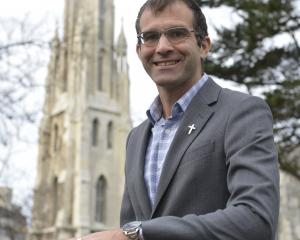
On April 6, 2024 I said goodbye to my brother Peter.
For ever, I mean. He’s dying of a cancer that has taken insidious control of his body over the past couple of years and since he’s in Houston, Texas, I knew I wouldn’t see him again, in this life at least.
"Thank you for everything," I said.
Haltingly, because the tears were so insistent and how can you express all the gratitude in mere words?
"Thank you for your life."
My sister-in-law Masami said "the wonderful thing about this family is that there’s nothing to forgive. No barriers between people or things that have to be dealt with."
I agreed, feeling thankful that, although my heart was breaking, physically almost, there was this blessing of taking leave in peace.
Since then, I’ve been reflecting upon the thorny topic of forgiveness, because it might not have been like this; we might have allowed the past to cloud the present.
So many of my clients have experienced sharp, dreadful wounds inflicted by others. From my vantage point I can see what a burden they carry because of this hurt, and it feels facile (not to mention presumptuous) to say, "listen, you’ve got to forgive so as to be free yourself".
I’ll tell you what I’ve learnt within my family context, and I offer it as gentle suggestion rather than directive.
I think first it helps to have a vision of the future, of yourself as having forgiven.
Then, to make the decision to forgive, even though the feelings may not be present.
Thirdly, it helps to to work at it.
My father, although a good man, a faithful believer, was a stringent disciplinarian. Those were the days of "thrashings" and my brothers and I received them in abundance, sometimes for what seemed like incidental infractions.
Behavioural standards were high, resulting for us in a sense that we could never measure up.
I loved my father fiercely — still do — but as an adult and a parent myself I was angry with him for his harshness and unrealistic expectations.
We moved to New Zealand in 1986, and for a decade and from thousands of miles away I struggled with these thoughts, often waking in the wee hours imagining a day when father would front up and seek forgiveness of his children for getting it so wrong. Knowing all the while that that day would probably never come.
Do you know what changed my mental approach? My father was diagnosed with cancer in 1997, and, worn out with my own resentment, I saw myself as having forgiven, and prayed hard that God would help me there.
Then I committed myself to forgiveness quite independently of any insight he might or might not show. It took time, and work. Without at all denying the pain and outrage of what I’d experienced, I attempted to understand him better.
Plato is reputed to have advised, be kind, because everyone you meet is fighting a great battle.
My father’s great battle had its roots in his own strict German upbringing and his fervent desire to see his children living good, upright lives. In order to achieve that he deployed the only means he knew: love and force, and sometimes too much of the latter.
He said it was love for us that impelled him to discipline, but this didn’t stop his actions from rankling.
Powerfully however I began to see my father through the lens of Jesus’ cross, as someone limited by his own past but enormously beloved of God, in fact enough to die for.
Forgiveness came, slowly but surely, and I discovered the truth of Lewis Smedes’ words: "to forgive is to set a prisoner free and discover that the prisoner was you".
Lynne Baab says, in a blog I read assiduously, that through forgiveness the Holy Spirit "disrupts our need to be right", and rescues us from dwelling in past pain and the need to self-justify.
Something new and liberating happens inside us when we let go; a warmth, relaxation and freedom infuses the relationship, shifting aside any previous withholding and resistance. This was my experience.
In Anne Lamott’s terms, I finally "gave up the idea of having had a better past" then stood back amazed at the way God had reframed my perspective.
In biblical terms, God had renewed my mind.
My father lived for another 10 years after this, and they were the best of our relationship. There were no apologies or frank acknowledgements from him (although once he did say, graciously, "Jen, I see that you manage all your boys without physical punishment").
But do you know, that didn’t matter, because there was joy and companionship in the present that we shared, and no debilitating regret upon his death.
■ Jenny Beck is a lawyer and member of Dunedin City Baptist Church.












